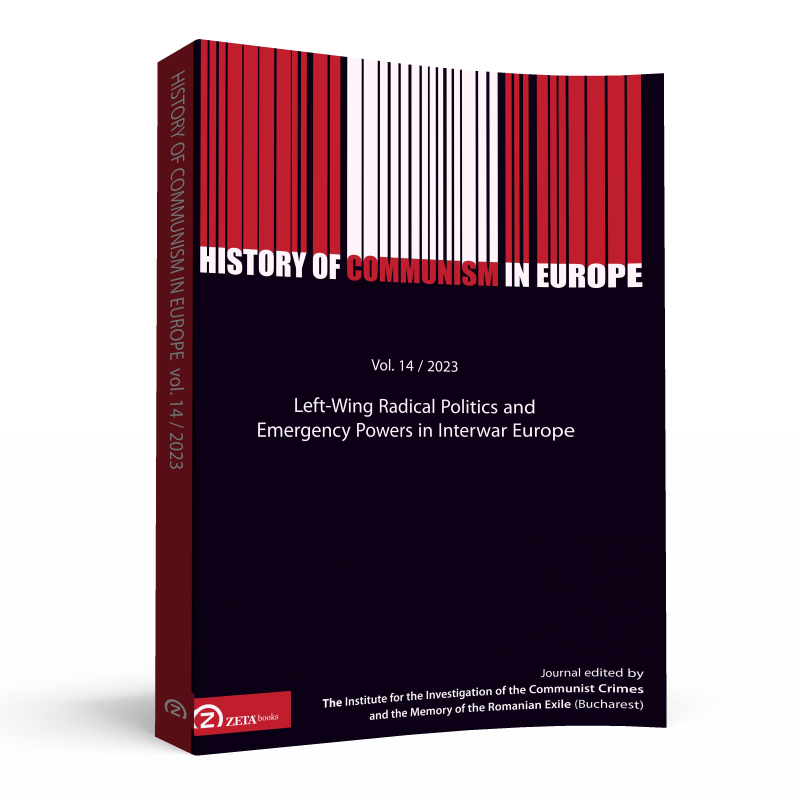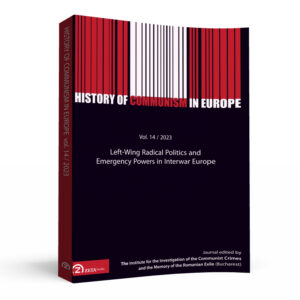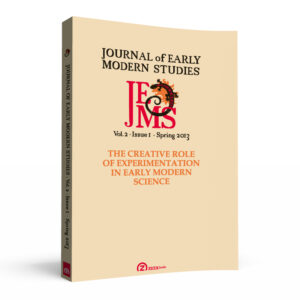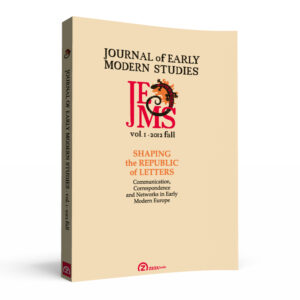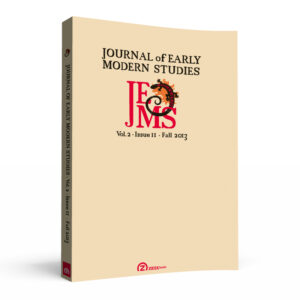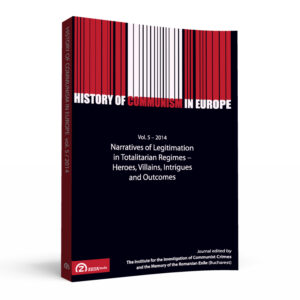History of Communism in Europe, vol. 14 / 2023: Left-Wing Radical Politics and Emergency Powers in Interwar Europe
TABLE OF CONTENTS
CORNELIU PINTILESCU, COSMIN CERCEL
Editors’ Introduction: Left-Wing Radical Politics and Emergency Powers in Interwar Europe [OPEN ACCESS]
Abstract: This argument aims to provide an overview of the historical context and main factors shaping the relation between left‑wing radical politics and emergency powers in interwar Europe. It also brings to the fore how left‑wing radical movements fuelled, reacted to and were connected with the multiple crises of the time span between the two world wars. The main argument is that emergency powers had the potential and were turned into a vehicle for an authoritarian drive, as several cases of that time illustrate. The abuse of emergency powers led to a normalisation of political violence and worked as a corrosive force against the liberal order in several European countries during the interwar period.
1. Within or Outside the Law: Containing the Communist Parties in Interwar Europe and its Postwar Aftermath
KRISTINA KRAKE
Taming, not Banning: Scandinavian Containment of the Communists
Abstract: This article examines the Scandinavian political responses to radical left‑wing activism in the interwar period. This is done by combining an analysis of legalistic aspects with rhetoric. Although the Scandinavian countries— Denmark, Sweden and Norway—did not embark on a path of emergency powers to fight a communist enemy, attempts to tame and ban communist parties certainly took place. The article argues that all three countries imposed restrictive legislation to inhibit any kinds of movements, hostile to the democratic system, but also that there were limits to the restrictions. Thus, the parliamentarians decided to criminalize tendencies to political violence, but to tolerate anti‑democratic sentiments to be voiced. By addressing the response to subversive movements, the article offers insights into Scandinavian efforts to safeguard democracy in a time of political and social crisis.
RASTKO LOMPAR
The Emergence and Evolution of Anticommunist Legislation in Interwar Yugoslavia
Abstract: The aim of this paper is to outline the history of anticommunist legislation in interwar Yugoslavia and to bring to the fore its key phases. This approach is employed to re‑examine the effectiveness of the introduced laws, to pinpoint their shortcomings, but also their strong points. Virtually from its creation, the Kingdom of Serbs, Croats and Slovenes (Yugoslavia) was hostile to communism. Anticommunist convictions of the ruling elites influenced many aspects of governance, not only internal affairs, as the outlawing of the Communist Party of Yugoslavia in December 1920, but also foreign policy, as postponing the recognition of the Soviet Union to 1940. There are three distinct phases of anticommunist legislation, each clearly marked by a key anticommunist law. During the first phase (1918‑1921), there were few legal instruments for combating left‑wing radicalism. The second phase (1921‑1929) was marked by the introduction of a highly controversial Law on the Protection of Public Security and State Order, which gave previous unprecedented powers to the prosecutors and police to crush the emerging communist movement. This legal framework was further expanded after the proclamation of the King`s dictatorship in 1929, and the overhaul of the Law, as well as the introduction of a special tribunal – The State Court for the Protection of the State.
PASCAL GIRARD
Italian and French Democracies’ Containment of Communist Unrest in the Early Cold War
Abstract: After a brief interlude of legality ending in 1947, France and Italy faced violence fuelled by Communist organisations; the most important took place from the autumn of 1947 to the autumn of 1948 and greatly impressed governments and public opinion, sustaining fear of a Communist uprising. Facing this challenge to public order were resolute Ministers of the Interior Mario Scelba and Jules Moch. Their policy gained them the reputation of resolute anti‑Communists going beyond the limits of democratic legality. This paper questions this simple picture. In fact, for centre‑right and centre‑left governments ruling these two countries, emergency powers were linked to the state of (civil) war and both ministries’ policies relied mainly on the application of the existing penal code and the mobilisation of existing forces. Moves to strengthen repressive laws depended on a long and uncertain parliamentary process and, without wide political consensus and solid parliamentary majorities, they often proved to be too little or too late. Judiciary repression was sometimes inefficient, leaving the Ministries infuriated by impunity. With the fear of world war peaking in 1950, there were legal efforts to thwart possible Communist support for a Soviet invasion; but those did not appear any more fruitful than prior attempts, and faded when internal matters seemed more urgent than the declining “Red Threat” in the 1950s. This study also highlights the fact that the repression by the Italian state, relying on former Fascist laws and sometimes infringing on civil liberties, was more violent than in France. Casualties caused by law enforcement persisted even after the decrease of Communist activism, underlying the historically higher level of social and political confrontation in Italy.
2. Revolutionary Left and Emergency Powers in Interwar Romania
CORNELIU PINTILESCU
Social Turmoil, Anti-Communist Discourses and the Resort to the State of Siege in Interwar Romania (1918–1933)
Abstract: Similarly to other European countries, Romania faced multiple and intertwined crises during the interwar period, including successive moments of social turmoil, the activity of its hostile neighbours, the emergence of various far‑right groups contesting the liberal order, and the looming spectre of the revolution. Among these threats, the fears of revolution and the intense activity of the Comintern worked both as main causes and discursive tools when the state resorted to emergency powers, which took the form of the state of siege in interwar Romania. By drawing on the files created by the Romanian secret police of that time, I argue that the state‑of‑siege mechanisms targeted not only those “threats” the state institutions invoked as reasons to justify the resort to emergency powers, but much broader categories of citizens. Several leaders of the political opposition, such as Pantelimon Halippa, or intellectuals involved in defending the civil rights engaged in vivid debates on the risks lurking behind the abuse of emergency powers. Finally, the abusive use of the state of siege worked as a corrosive force against the liberal order of the 1923 Constitution and heavily contributed to the establishment of King Carol II’s dictatorship in 1938.
COSMIN SEBASTIAN CERCEL
Unearthing the Dark Side of the Law. Narratives of Law and Authority in the Tatar Bunar Trials
Abstract: This article examines a series of events that are generally known in historiography as the “Tatarbunar Uprising” – an armed rebellion that took place over ten days in September 1924 in south‑eastern Bessarabia. I am also interested in the aftermath of those events as well as in their legal and memorial afterlife. My attempt is to reason through and to clarify the legal and historiographical construction of narratives of sovereign power as they emerge from the archives of the trial as well as that of the preceding and subsequent military and police operations. The reflection I will conduct here is indeed grounded in the historical context of 1923‑1925, but the jurisprudential and comparative legal and political analysis I will deploy here has more general reach insofar as it aims to grasp some more general points about the status of legality under the conditions of emergency.
CRISTINA DIAC
Scapegoats or Agents of State Dissolution? The Comintern, the Romanian Communists, and the Grivița Strike in February 1933
Abstract: Romanian Prime Minister Al. Vaida‑Voevod aired the “communist danger” that “threatens the constitutional order and aims to dismantle the Greater Romania” when he asked for parliamentary support for the Law on state of siege (martial law) in February 1933. This article will investigate the role of the transnational communist networks in Romania in the Grivița strikes to verify the truthfulness of the Prime Minister’s discourse. The communists’ role in the Grivița strikes is part of the general performance of these transnational networks during the Great Depression. The political strength of the Romanian extreme‑left will be assessed by taking into consideration the main goals of the Comintern towards the transport sector during the Great Depression, the institutions that were supposed to achieve the goals, and their effectiveness from mid‑January until mid‑February 1933.
IULIANA CINDREA-NAGY
From Communists to Rebellious: Repressive Measures and Narratives of the State Against the Old Calendarist Communities in Romania (1924–1939)
Abstract: After the consultative synod at Constantinople in 1923, the Romanian Orthodox Church agreed to adopt a revised version of the Julian calendar. This meant a break with tradition that brought about a series of crises on a spiritual and political level. Dissent movements, known as Old Calendarist, started to emerge in the villages of Moldavia and Bessarabia; led by defrocked monks, these groups posed a threat for the Romanian Orthodox Church and for the newly formed state and its modernising goals. Accused of sympathising with the communist ideas, as well as of propagating them, the Old Calendarist leaders were labelled as dangerous Bolsheviks and aggressive measures were adopted by both state and church authorities in order to destroy the movements and disperse their members. Based on press articles of the time and archival documents, the present study analyses the development that the Old Calendarist movement underwent in Bessarabia, a region with a strong monastic tradition, as well as the discourse and politics of state authorities against this specific community.
III. Book Review
LOUIS MARIUS BREMOND
Alan Greene, Emergency Powers in a time of Pandemic (Bristol University Press, 2020).
ISSN 2069-3192 (paperback)
ISSN 2069-3206 (electronic)

